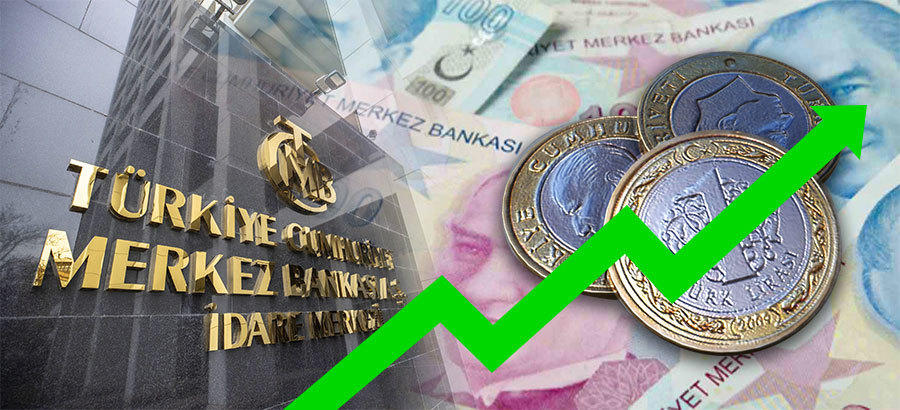
Published: September 27th, 2021
BGP/TRY was on its way back to highs last seen in June on Thursday after an unexpected interest rate cut by the Central Bank of the Republic of Turkey (CBRT). However, last week's gains may struggle to sustain against investor concerns about political meddling in monetary policy.
Turkish exchange rates dropped sharply following the CBRT announcement, which lowered the benchmark rate from 19 per cent to 18 per cent as part of the central bank’s September policy review. It was a move many analysts were only expecting to happen much later in Q4.
The leading USD/TRY exchange rate hit resistance on Friday after testing the 8.80 ceiling; a record high previously reached in June. When pitted against sterling, analysts believe market pushback could keep GBP/TRY from exceeding its recent peak of 12.13 reached in July.
Keeping a close eye on the pound’s primary GBP/USD exchange rate could surface lira opportunities if the pair climbs above the 1.37 handle. GBP/TRY typically reflects the relative performance of the primary TRY and GBP exchange rates.
However, the Turkish bank's surprise policy move opens the door to lira sceptics and has already prompted some analysts to forecast new record lows for TRY, with USD/TRY broadly projected to lift above 8.80 in the coming weeks.
Monex Europe’s FX Analysis Unit published a market comment saying the CBRT’s 100 basis point cut ‘was a move long-feared by traders. It signals that President Erdogan’s ongoing agitation for lower rates has now taken hold.’
Monex expects USD/TRY to push past the 9.00 level: ‘the levels of inflation experienced in Turkey over the last few years has been significantly higher than other emerging markets, with USD/TRY exchange rates pushed up by depleted central bank monetary credibility, TRY depreciation, and now strengthening demand as the economy reopens.
September’s rate cut signals that the CBRT has given ground in its longstanding tussle with Turkish President Recep Erdogan about keeping the cash rate above the prevailing level of inflation. The central bank’s September policy statement appeared to confirm this by deleting references to the commitment, an omission that triggered steep falls in TRY.
Turkish inflation rose from 18.94 per cent to 19.23 per cent in August, the highest level seen since 2019, which was driven by increases in energy costs and the disrupted global supply chains that have made many goods and services more expensive in every country.
Following the bank’s previous course on inflation would have seen rising price pressures combatted by a lift to Turkey’s interest rate, despite perceptions that the CBRT was looking for an opportunity to lower it.
In its September statement, the CBRT said it was closely monitoring high global inflation and its impact on international financial markets: ‘Central banks in developed economies see the rise in inflation to be mostly temporary, which is why they maintain supportive monetary policies and sustain their QE and asset purchase programs. Our outlook for Turkish inflation takes a similar view.
While many market observers were looking for a rate cut to be announced later in the year, possibly even at the end of December, last week’s cut took many by surprise. By pre-empting market expectations, the bank could set up the lira for further pressure in the coming weeks.
Christian Maggiore, an emerging markets analyst at TD Securities, told Bloomberg that the lira will be ‘a shock absorber’ as the CBRT replenishes its limited foreign exchange reserves buffer.’ The central bank is also agreeing new international swap agreements or expanding the existing lines with foreign central banks,’ he added.
TD Securities is forecasting USD/TRY to move above 8.84 by September’s end and reach 9.14 by year-end. As the central bank recently expanded its forex reserves from USD 49 billion in May to USD 77 billion in August, TD thinks those losses will happen in an orderly fashion.
‘That will provide the CBRT with the ammunition it needs to support the lira if the need arises, though not enough if markets move strongly into short positions on TRY,’ TD said in a research note following the CBRT rate cut announcement.
‘It suggests that Turkey’s central bank will have to align the pace of any easing with the prevailing market dynamic, potentially even suspending its easing programme or slowing its pace if negative pressure on the lira intensifies.
In early August, remarks by President Erdogan that the CBRT should move to lower interest rates wiped out a series of lira gains that had accumulated since June.
As the Friday (6th August) session drew to a close, Erdogan’s intervention eliminated gains made in June and July and sent TRY tumbling to as low as 8.5717 against the dollar.
At the tie, analysts said the rapid reversal showed just how changeable investor sentiment was, with fears of politically motivated monetary easing inflaming inflation worries. Forex traders, it was thought, might even overlook TRY’s previous yields and start exiting their positions.
Barclay’s emerging-market unit told the Financial Times that it believed there was a better than a fifty per cent probability that TRY would fall below 9.5 per dollar by year’s end.
‘In our view, it’s not this week’s change that's been most notable; instead it’s the two-month period of strength,’ they said at the time. ‘We believe that’s not been supported by fundamentals.’ Barclay’s analysts also said they thought that the lira cloud drop to 10 per dollar by year-end.
Central bank governor Şahap Kavcıoğlu had, up to that point, resisted Erdogan’s calls for slackening monetary policy and was steadfast in his determination to keep the central banks’ benchmark rate at 19 per cent. While that made it one of the highest rates amongst emerging markets, the policy has done little in the way of holding back inflation, which was and continues to run hot.